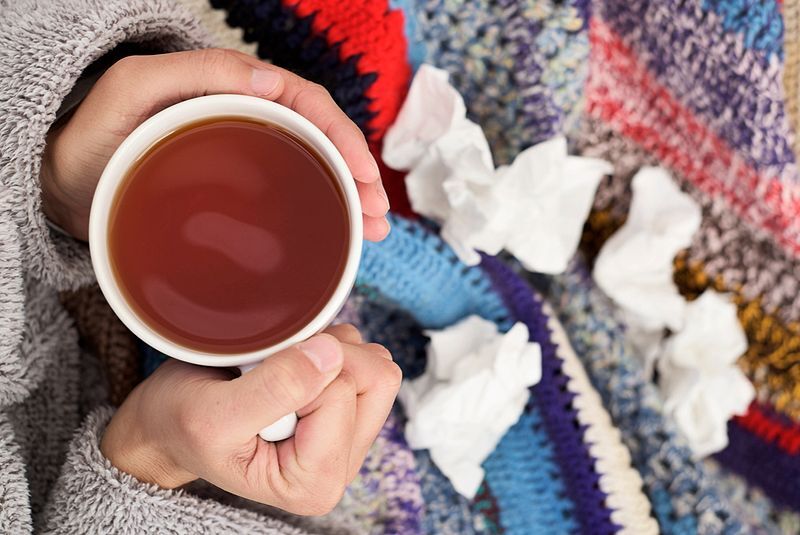As soon as there’s a chill in the air, your next move may be to switch on your heating system. But what happens next you may not chalk up to your heating system: coughing, headaches, allergies, and general discomfort. Here’s what you may not know: your indoor heater may be making you sick.
How Your Central Heating is Making You Sick
We don’t generally think about our central heating as something making us sick, which is why the problem is so insidious. Dust, pollen, and other allergens collect in the ductwork during the spring and summer. When you turn on your heating system in the fall, they come rushing out into your home and lungs. If you haven’t changed out your air filters, you may be breathing in mold and dust accumulated over time. Then, there’s the basic feeling of discomfort going between rooms if they’re not equally regulated. Here are 8 ways that your central heating could be making you feel sick.
Symptoms
- Sneezing: You may have sneezing and sinus congestion due to the particulates in the air.
- Coughing: You may experience coughing due to a dry throat and nasal passages.
- Allergies: Your allergies may act up due to allergens, such as dust and pollen, being blown into your air.
- Headaches: You can suffer from migraines and sinus headaches due to clogged sinuses and smells from mold, fungus, and dust. You may also suffer from headaches due to carbon monoxide from faulty furnaces.
- Watery/itchy eyes: You can have dry, watery eyes from too much dust and dry air.
- Sore throat: Your throat can become sore from bacteria and dryness in the air.
- Dryness: You can feel too dry from your central heating. You may become dehydrated as a result.
- Poor Circulation: You may feel uncomfortable in your house due to changes in temperature from one room to the next.

What Can You Do About It?
If you have any of these symptoms, you may be wondering how you can make yourself feel better. After all, no one wants to feel sick, especially just from turning on the heat. Luckily, there are ways to stop feeling sick after turning on the furnace for the winter.
Get Your Ducts Cleaned
Before it gets too cold and you need to turn on the heat, get the ductwork cleaned out. This ensures that you have clean, warm air coming through your ducts the first time you start your furnace for the season. You’ll solve a number of potential problems by getting your ducts cleaned, including sneezing, coughing, allergies, and headaches.
Heat Your Whole House
You may be looking at heating only parts of your home to save on bills, but that can be dangerous to your health. If you have bad circulation, or get cold hands and feet often, going from a cold room to a hot room and then back again can cause serious problems. Going from a warm room to a cold room causes your blood pressure to increase and can reduce the blood supply to your heart. That can cause a heart attack, angina, or an abnormal heart beat. Heat your entire house and avoid the risks to your health.
Invest in a Humidifier
If you’re dealing with dry skin, dry throat, and irritated sinuses, you may have too dry of air. Invest in a humidifier, which will increase the moisture in the air, making it more comfortable to breathe. Adding a humidifier has other benefits as well. With a humidifier, you don’t have to turn the heat all the way up, thus saving you cash on your energy bills.
Open a Window
If you’re feeling sick when you start the furnace, you may want to open a window to get fresh air. You should also have a furnace specialist visit to make certain you are not getting sick from carbon monoxide or carbon dioxide. Have a carbon monoxide monitor in your home to ensure that you do not have high levels of this dangerous gas. When in doubt, have an expert examine your heating system.
Upgrade Your Central Heating System
Older heating systems can have problems such as faulty furnaces that may be adding to your sickness and posing a carbon monoxide poisoning threat. Furthermore, gas furnaces create nitrogen dioxide, which can cause asthma in children. If you suspect you have problems with your current central heating system, it may be time to contact a specialist to have it upgraded or replaced.
Use a HEPA Filter
Rather than use those cheaper furnace filters, invest in a permanent HEPA filter to provide clean air when you run your furnace. HEPA filters screen out over 90 percent of the particles in your air.
Next time you fire up your heater, be aware of how you feel for the next week or so. If you suddenly feel sick, it may be time to contact a specialist.


